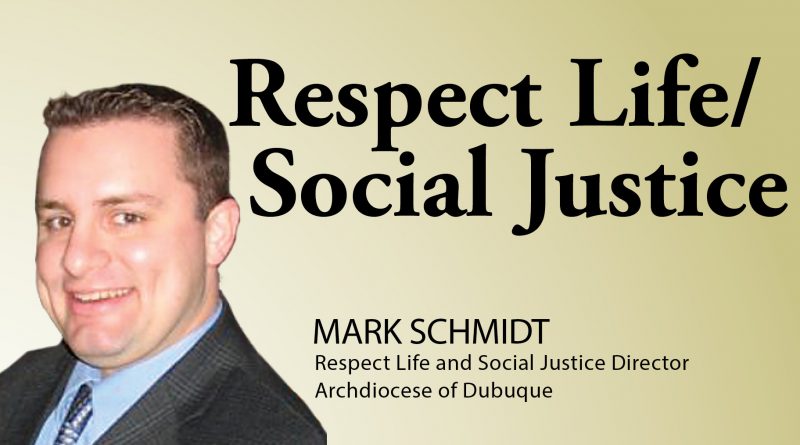‘Born Alive Act’ Part 3: What type of medical care is morally required?
This is Part 3 in a series on abortion issues. The first two parts, published in previous print editions, can be seen at TheWitnessOnline.org.
As discussed in the last column in this series, the intent of the Abortion Survivor Patients Protection Act is morally just; that is regardless of the conditions under which a child is born alive they deserve medical care even if they were born as a result of a failed abortion attempt.
What type of medical care is morally required? This is a question with more nuanced answers. Stepping away from the abortion issue for a moment, this question touches on general end of life care decisions. What measures are required to be taken to sustain/save a life and what measures can we forgo? An important principle that assists in determining the proper medical care is evaluating the burden and benefit that will occur for the patient. The U.S. Catholic Bishops Ethical and Religious Directives for Catholic Health Care Services, sixth edition states:
“A person has a moral obligation to use ordinary or proportionate means of preserving his or her life. Proportionate means are those that in the judgment of the patient offer a reasonable hope of benefit and do not entail an excessive burden or impose excessive expense on the family or the community.
A person may forgo extraordinary or disproportionate means of preserving life.
Disproportionate means are those that in the patient’s judgment do not offer a reasonable hope of benefit or entail an excessive burden, or impose excessive expense on the family or the community” (56-57).
This principle also applies to the care for a child born as a result of a failed abortion attempt. Does the medical care offer a benefit to the patient? Even with intervention, is there reasonable hope that the treatment will succeed in prolonging life or reducing suffering? If there are burdens that accompany the treatment, do those burdens outweigh the potential benefit? Is the dignity of life and the fundamental right to life being respected?
Curative or life-saving efforts in the case of a child born alive after a failed abortion attempt should be considered standard care but would not necessarily be required in all cases as it may not only be ineffective but may actually cause greater suffering to the child and so hospice or palliative methods are the recommended medical course of treatment. The child should not be abandoned to suffering but neither is the child’s life prolonged at all costs placing undue burden and suffering on the child. Each case must be evaluated with the specifics of the case regardless of how the child came to be born alive. Thus, even a child born alive following an attempted abortion may not require, nor would it be recommended, to provide life-sustaining medical care because of the undue burden that such care would put on the child. Instead that child should receive palliative care to ease any possible suffering and any intervention to hasten death is prohibited.
This is where we find some possible unintended consequences of this bill. It requires “reasonable diligence” in determining what care ought to be provided to a child born alive with regards to life-sustaining treatment. A medical professional may feel obligated to provide life-sustaining treatment for fear of violating the law, putting an undue burden on a child. Absent from the bill are specifics of whether or not palliative care is acceptable treatment.
Some supporters of the bill seem to be conflating issues, wrongly labeling any withdrawal or refusal of certain medical care as infanticide.
As Catholics we recognize that every child born alive deserves some form of medical care. What is appropriate care at that time is not so simple to determine and must be evaluated on a case-by-case basis based on the specific needs/complications the child faces.
A person might support this bill in principle but not support it in the language it is written because of some of the potential unintended consequences mentioned above.
It is important to recognize some legitimate concerns about this bill so that possible amendments can be considered, or, if it passes in its current form, follow-up work can be done to address any unintended consequences. In no way does this mean that one should not support this bill; in fact, the USCCB has put out action alerts to encourage Catholics to contact their legislators to bring the bill to a vote so that it might have a chance at passing. It is also important to understand why someone might be opposed to the bill, at least as it is written in its current form. Opposing the bill because of a perceived threat to legal rights to an abortion are morally unjustified. But, as mentioned, some may have other concerns that are wholly in keeping with the Catholic faith.



